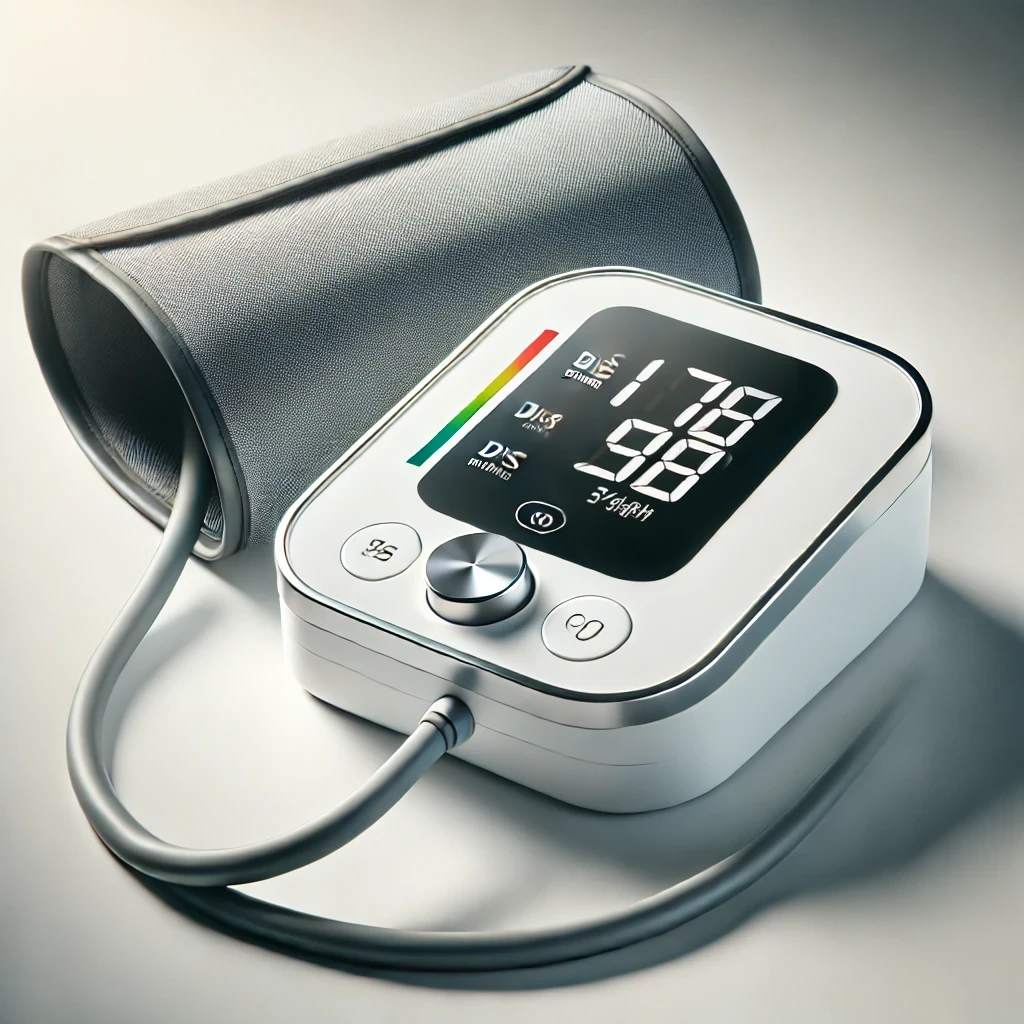
What Everyone Should Know
High blood pressure (hypertension) is a common but frequently unrecognized condition that affects millions of people worldwide. Often referred to as the “silent killer,” it rarely shows symptoms until significant damage has been done to vital organs like the heart, kidneys, or brain. We are going to explore the importance of blood pressure control, goals, comorbid conditions that increase risk, and the dangers of leaving hypertension unchecked.
What is Blood Pressure?
Blood pressure measures the force exerted by circulating blood on the walls of the body’s arteries. It is recorded with two numbers:
- Systolic (the top number), measures the pressure during the heart’s contraction. Systolic hypertension reflects the stiffness of the arterial system. It is a strong predictor of cardiovascular events, especially in older adults. It is often the primary focus of management of hypertension.
- Diastolic (the bottom number), measures the pressure when the heart is resting between beats. While less emphasized than systolic hypertension, elevated diastolic pressure can reflect the resistance in small vessels. This can lead to long term organ damage, especially in people under 50.
Blood Pressure Goals
- Normal Blood Pressure: Systolic less than 120 and diastolic less than 80.
- Elevated Blood Pressure: Systolic 120-129 and diastolic less than 80.
- Hypertension Stage 1: Systolic 130-139 or diastolic 80-89.
- Hypertension Stage 2: Systolic 140 or higher or diastolic 90 or higher.
- Hypertensive Crisis: Systolichigher than180 and/or diastolic higher than 120.
Some practitioners use 130 / 80 as a blood pressure goal because they feel it is more attainable and manageable than 120 / 80.
Seniors and Blood Pressure
Blood pressure guidelines for seniors have been evolving. In the past, recommendations were higher with 140 / 90 recommended for most older adults and recommendations for those aged 60 and over as high as 150 / 90. At that time, it was felt that lower blood pressure thresholds for older adults may lead to increased dizziness, falls or other complications. Several recent studies of hypertension show that more intensive blood pressure control in older adults reduces the risk of cardiovascular events and mortality with few significant side effects when compared to previous recommendations.
Comorbid Conditions
- Chronic Kidney Disease: For individuals with chronic kidney disease (CKD), the target is less than 120/80, though some groups recommend a goal of 130/80. Good control is essential because these individuals have a higher risk of cardiovascular complications and worsening of kidney function. Patients with a kidney transplant have a recommended blood pressure target of less than 130 / 80. Dialysis patients have a pre dialysis blood pressure target of less than 140 / 90 and a post dialysis blood pressure target of 130 / 80, although some groups have not issued specific recommendations for dialysis patients.
- Coronary Artery Disease: Patients with heart disease may also have more stringent blood pressure goals to reduce the risk of further cardiovascular events. Blood pressure recommendations may vary based on specific medical conditions such as congestive heart failure or myocardial infarction.
Specific blood pressure goals may vary among organizations and professional groups. It is essential to individualize treatment based on factors like overall health, risk of side effects, and tolerance to medications. Always consult your healthcare provider to determine the most appropriate blood pressure target and management plan for you.
Risk of Uncontrolled Blood Pressure
Uncontrolled hypertension can lead to devastating health consequences, especially over time. Below are some of the most significant risks:
- Heart Disease and Stroke: High blood pressure forces the heart to work harder than normal to pump blood. Over time, this can cause the heart muscle to thicken (hypertrophy) and weaken, increasing the risk of heart failure. Hypertension is also a major contributor to atherosclerosis (narrowing of arteries), which can lead to heart attacks and strokes.
- Kidney Damage: The kidneys rely on a network of blood vessels to filter waste from the blood. Elevated blood pressure can damage these vessels, leading to kidney disease or even kidney failure.
- Vision Loss: Hypertension can damage the tiny blood vessels in the eyes, leading to a condition known as hypertensive retinopathy, which can result in vision loss if left untreated.
- Aneurysms: High blood pressure can cause blood vessels to weaken and form bulges called aneurysms. These can rupture, resulting in life-threatening internal bleeding.
- Dementia and Cognitive Decline: There’s a growing body of evidence linking high blood pressure to an increased risk of dementia and cognitive decline. The damage caused by hypertension to the brain’s blood vessels may lead to a condition called vascular dementia.
Why You Might Not Know You Have High Blood Pressure
One of the most dangerous aspects of hypertension is that it often presents with no symptoms. Many people can live with elevated blood pressure for years without feeling any different, which is why regular monitoring is crucial.
Common reasons why a person may not realize they have hypertension include:
- Lack of Symptoms: Unlike some health conditions that cause noticeable pain or discomfort, high blood pressure doesn’t usually cause obvious symptoms. You may feel perfectly fine even if your blood pressure is dangerously high.
- Gradual Onset: Blood pressure often rises gradually over time, so the body adapts to the higher levels. You may not feel the physical effects until damage has occurred to your organs.
- Delayed Health Checkups: Some people, especially if they feel healthy, might avoid routine medical checkups where blood pressure is measured. Without regular monitoring, hypertension can go undiagnosed for years.
- Misconceptions: Many individuals believe that hypertension will give warning signs like headaches or dizziness, but these symptoms typically occur only in extreme cases (like hypertensive crisis) or after the damage has been done.
The Importance of Regular Monitoring
Given that high blood pressure is often symptomless, regular blood pressure screenings are essential. Your doctor can determine your risk factors based on age, family history, and lifestyle. Home blood pressure monitors are also widely available and can help you track your numbers between doctor’s visits.
For those with a family history of hypertension or conditions like diabetes, it’s critical to be proactive in getting your blood pressure checked.
Conclusion
While high blood pressure may not make you feel sick, it’s a condition that requires attention. Managing your blood pressure according to your overall health and any comorbid conditions can dramatically reduce your risk of heart attack, stroke, and other life-threatening complications. Regular monitoring, lifestyle modifications, and working closely with your healthcare provider can help ensure that your blood pressure stays within a healthy range.
Make an appointment today to have your blood pressure checked, especially if it’s been a while since your last screening. Remember, you won’t know unless you check!


Leave a Reply